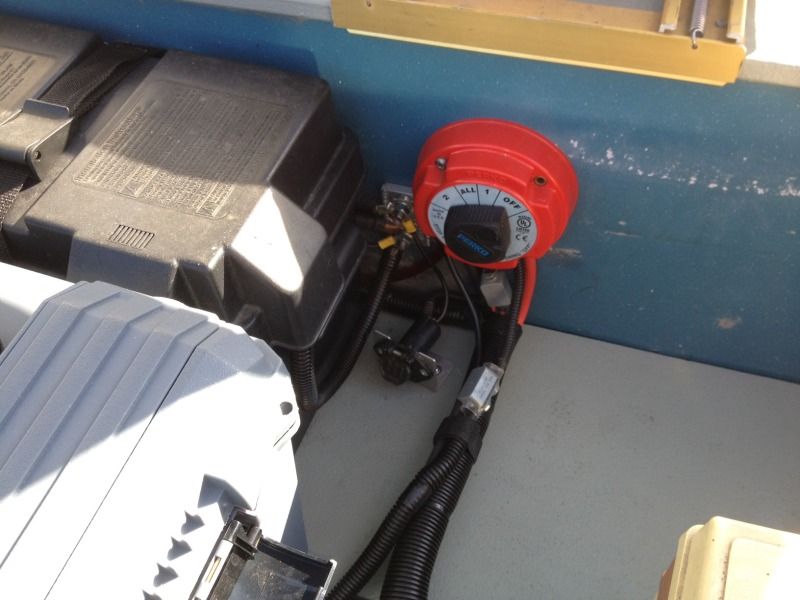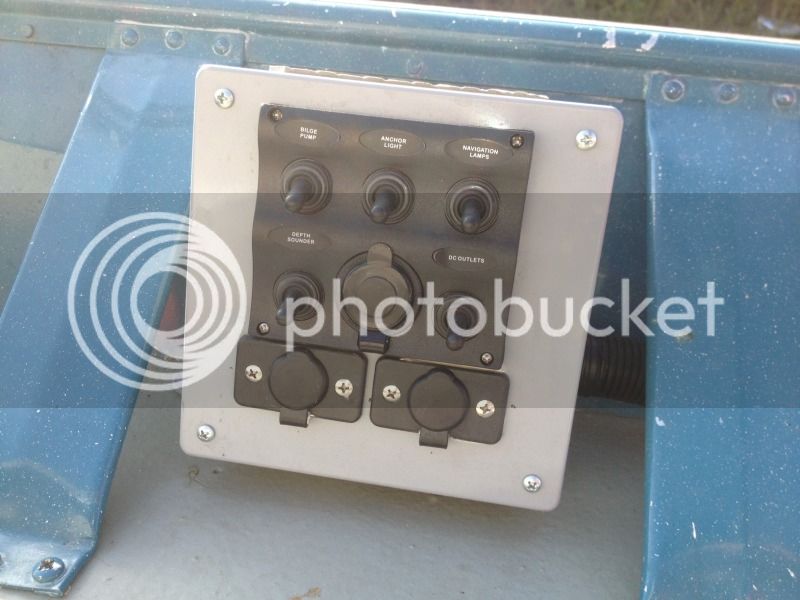user 10949
Well-known member
- Joined
- Feb 23, 2013
- Messages
- 51
- Reaction score
- 0
I'm working on the wiring diagram for our boat. the electronics include:
12v 55# front troller
12v 45# rear troller
fish finder
running lights
anchor light
LED cabin lights white
LED cabin lights red
12v accessory (lighter)
USB charging bus
Each item will have an individual fuse and on/off switch on the panel. i was planning to use solid wire, not a braid.
#1 should there be a main on/off switch between the battery and the bank of fuses/switches for charging purposes? I see the big red knobs and don't know if that's just for 2 bank battery switching or for a main breaker.
#2 how heavy of a wire should the main power cable be? from the battery to the bank of fuses/switches?
12v 55# front troller
12v 45# rear troller
fish finder
running lights
anchor light
LED cabin lights white
LED cabin lights red
12v accessory (lighter)
USB charging bus
Each item will have an individual fuse and on/off switch on the panel. i was planning to use solid wire, not a braid.
#1 should there be a main on/off switch between the battery and the bank of fuses/switches for charging purposes? I see the big red knobs and don't know if that's just for 2 bank battery switching or for a main breaker.
#2 how heavy of a wire should the main power cable be? from the battery to the bank of fuses/switches?




